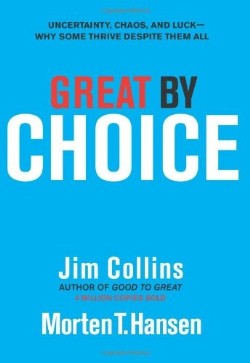Holding Faith : A Practical Introduction To Christian Doctrine
$56.99
Luther once wrote: “Faith takes hold of Christ and has Him present, enclosing Him as the ring encloses the gem.” The idea that we hold faith because faith holds us, and that faith holds us because faith holds Christ, is vital. We hold faith as we seek to know Christ better, exploring Christian doctrines and deepening our understanding of the impact and relevance to our day-to-day lives. Faith holds us as we respond to Christ’s calling, negotiate life’s challenges, and join in the work of bringing in God’s kingdom. The book conveys the content of core Christian doctrines and then addresses the “so what?” of each, its take away, how it matters to our everyday living, and how it shapes our spiritual and ethical practices. Using theological literature and Scripture but also current events, sociology, fiction, and movies, the author shows that theology matters. It matters to our lives and it matters to the life of the world. How we understand theology and its core beliefs has an impact on who we know ourselves to be and how we relate to God and to one another. Holding Faith concretely shows how various and diverse understandings of particular doctrines play out in relation to the way lives are lived and ethical systems put forward. It holds that some approaches to Christian doctrine are preferable to others, making persuasive arguments for better approaches by drawing from the theological literature and also from the news, sociology, general literature, and movies. Scripture is consistently used and sourced throughout the book as arguments are developed.
in stock within 3-5 days of online purchase
SKU (ISBN): 9781630885847
ISBN10: 1630885843
Cynthia Rigby
Binding: Cloth Text
Published: November 2014
Publisher: Abingdon Press
Print On Demand Product
Related products
-
Great By Choice
$29.99The new question
Ten years after the worldwide bestseller Good to Great, Jim Collins returns with another groundbreaking work, this time to ask: Why do some companies thrive in uncertainty, even chaos, and others do not? Based on nine years of research, buttressed by rigorous analysis and infused with engaging stories, Collins and his colleague, Morten Hansen, enumerate the principles for building a truly great enterprise in unpredictable, tumultuous, and fast-moving times.The new study
Great by Choice distinguishes itself from Collins’s prior work by its focus not just on performance, but also on the type of unstable environments faced by leaders today.With a team of more than twenty researchers, Collins and Hansen studied companies that rose to greatness-beating their industry indexes by a minimum of ten times over fifteen years-in environments characterized by big forces and rapid shifts that leaders could not predict or control. The research team then contrasted these “10X companies” to a carefully selected set of comparison companies that failed to achieve greatness in similarly extreme environments.
The new findings
The study results were full of provocative surprises. Such as:The best leaders were not more risk taking, more visionary, and more creative than the comparisons; they were more disciplined, more empirical, and more paranoid.
Innovation by itself turns out not to be the trump card in a chaotic and uncertain world; more important is the ability to scale innovation, to blend creativity with discipline.
Following the belief that leading in a “fast world” always requires “fast decisions” and “fast action” is a good way to get killed.
The great companies changed less in reaction to a radically changing world than the comparison companies.
The authors challenge conventional wisdom with thought-provoking, sticky, and supremely practical concepts. They include: 10Xers; the 20 Mile March; Fire Bullets, Then Cannonballs; Leading above the Death Line; Zoom Out, Then Zoom In; and the SMaC Recipe.Finally, in the last chapter, Collins and Hansen present their most provocative and original analysis: defining, quantifying, and studying the role of luck. The great companies and the leaders who built them were not luckier than the comparisons, but they did get a higher Return on Luck.
This book is classic Collins: contrarian, data-driven, and uplifting. He and Hansen show convincingly that, even in a chaotic and uncer
Add to cart1 in stock






Reviews
There are no reviews yet.